While I spent time in Arusha, Tanzania, this summer, I visited a very unique place called Shanga (Shanga is the Swahili word for bead).
I saw artisans at work weaving textiles at a loom, blowing glass into practical or decorative household items, and others making necklaces from colorful beads. In the backyard, there were massive amounts of recycled glass and other materials being sorted.
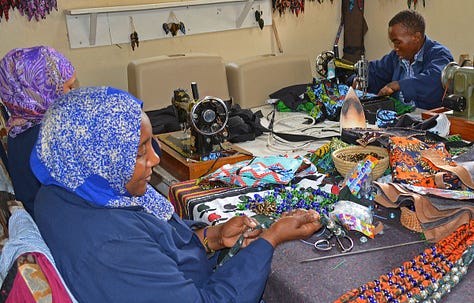

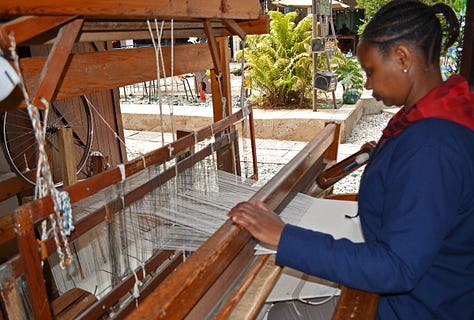
Next to the workshop area was a store with beautifully displayed items produced by these artisans – high quality jewelry, glassware, textiles, home decorations.
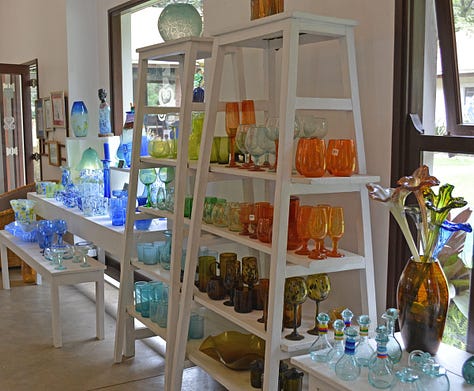
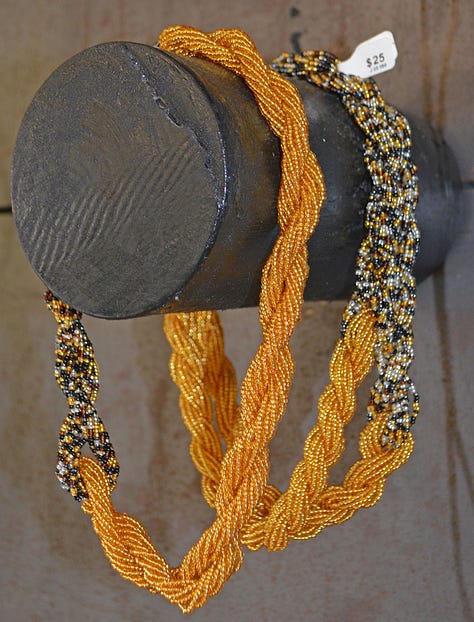
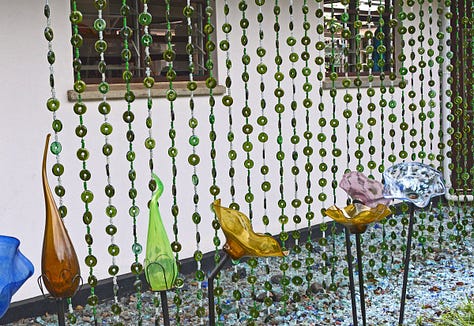
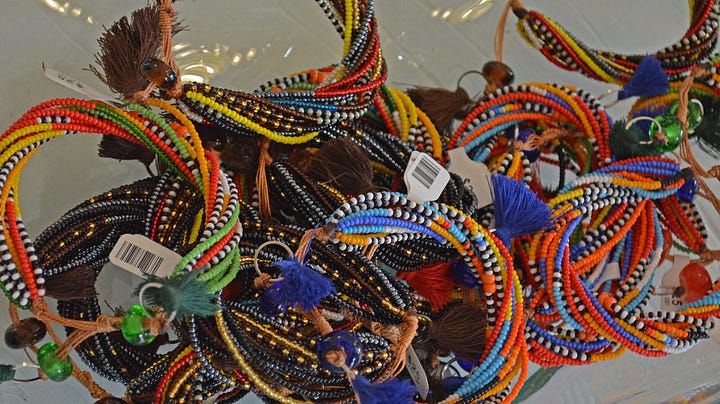
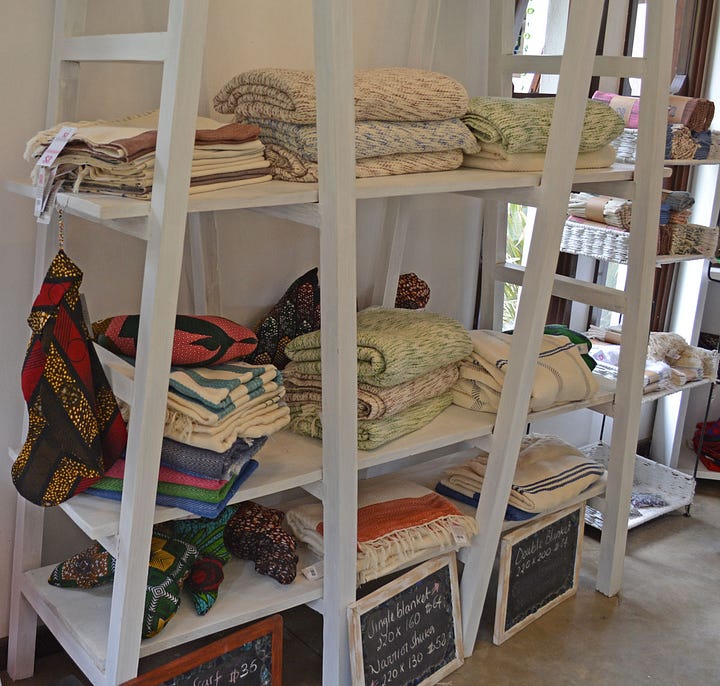
Shanga was founded in 2007 after a local woman created necklaces from fabric, beads, and marbles for a Christmas Fair. These necklaces were so popular they sold within a few hours and safari companies and gift shops placed orders afterwards. To meet the demand, a local deaf woman was employed working from her home. Soon, demand increased so much that the first Shanga workshop was created. Shanga now trains and employs 34 individuals with disabilities and is committed to using recycled materials in the process.
Shanga’s philosophy as explained on their website:
“Shanga’s aim is not only to provide employment opportunities to those that need them most but also to remove the stigma that people with disabilities often face in East Africa. By providing a safe and supportive environment, and employment opportunities, Shanga is providing an opportunity for those that have previously been marginalized by society a chance to contribute to their families and community.”
“Of no lesser importance is making amazing products from discarded materials so that we can contribute positively to the sensitive Tanzanian environment while producing creative pieces that celebrate Tanzanian culture.”
I enjoyed reading the story of the young man affected by dwarfism who became employed by Shanga. His big dream was to climb Mt. Kilimanjaro, a challenging endeavor for anyone. He trained and successfully completed his mountain climbing adventure. The photo of him in triumphant pose at the top of Kilimanjaro is priceless.
I love how this business focuses on integrating so many areas of social, ethical and environmental concerns in a circular, self-sustaining pattern: training and employing people with disabilities, turning throwaway and sustainable materials into beautiful and useful items, selling these hand-made products so that more disabled individuals can be trained and employed.
The website also mentioned that Shanga became the beneficiary of the Corporate Social Responsibility (CSR) program of a large hotel chain. This made me curious about the practice of CSR: What is it and what does it look like in a country like Tanzania?
The Tanzanian government has mandated that businesses contribute a small percentage (0.7%) of their income towards CSR projects to benefit local communities. This can take the form of implementing environmentally friendly practices into their manufacturing or extracting processes, or providing funding for community needs such as irrigation systems, community centers, and classroom equipment. One of the Tanzanian entrepreneurs I met plowed a much higher percentage of his profits into the local community by building a large public school in a remote area, and providing private school scholarships for bright students from poor backgrounds.
The concept of CSR was introduced by Julius Nyere, the first president of Tanzania following independence from Great Britain. Nyere was a democratic socialist who developed a theory and practice of African socialism uniquely adapted to his country’s cultures and economic and social circumstances. His principles of Ujamaa (cooperative economics), Umoja (unity) and Ubuntu (interconnectedness - “I am because we are”) continue to be in action.
What would our world look like if ALL companies participated in profit sharing that benefits not only their stockholders but entire communities and the environment?
References:
https://en.wikipedia.org/wiki/Julius_Nyerere
https://www.shanga.org/

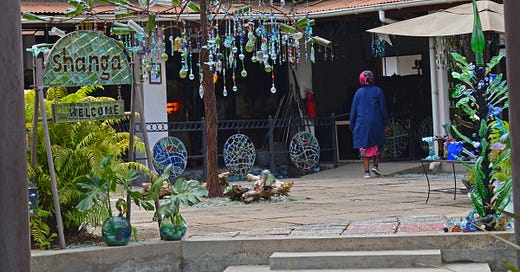



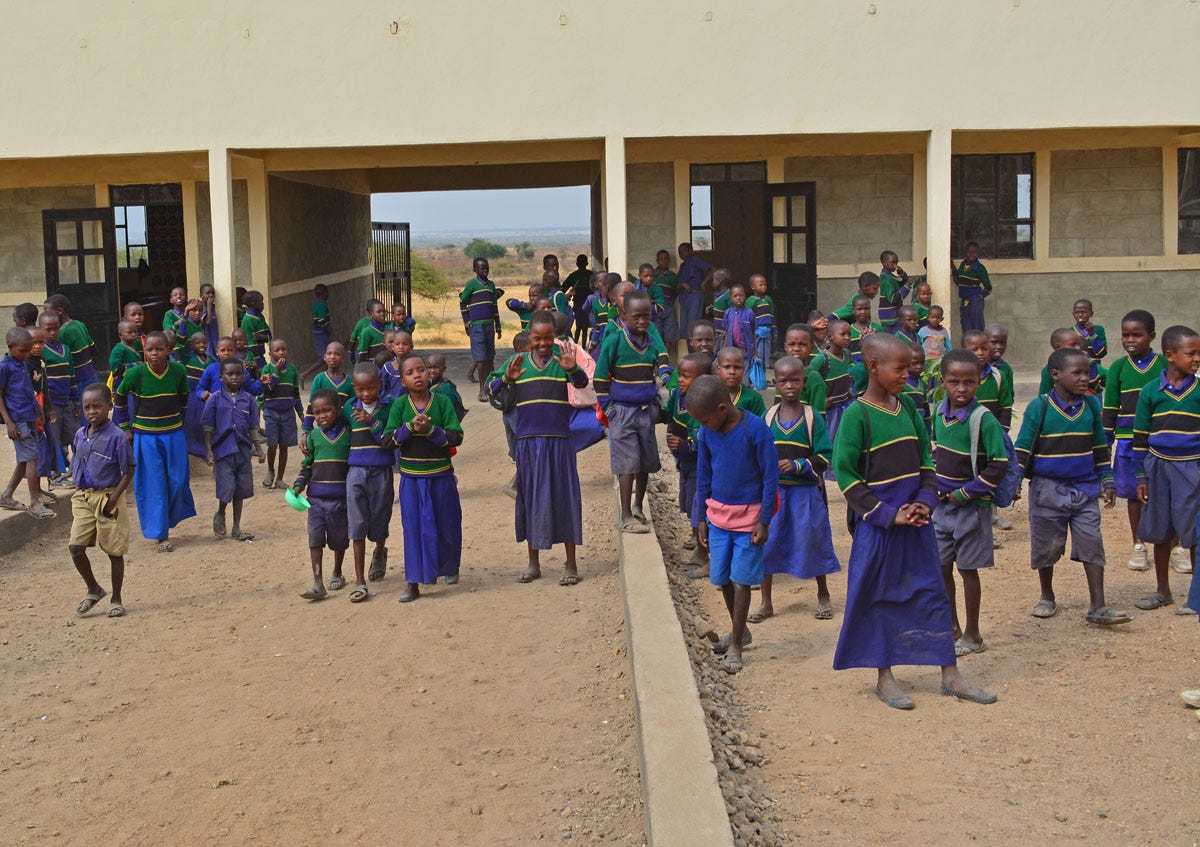
Brilliant post!
Beautiful!